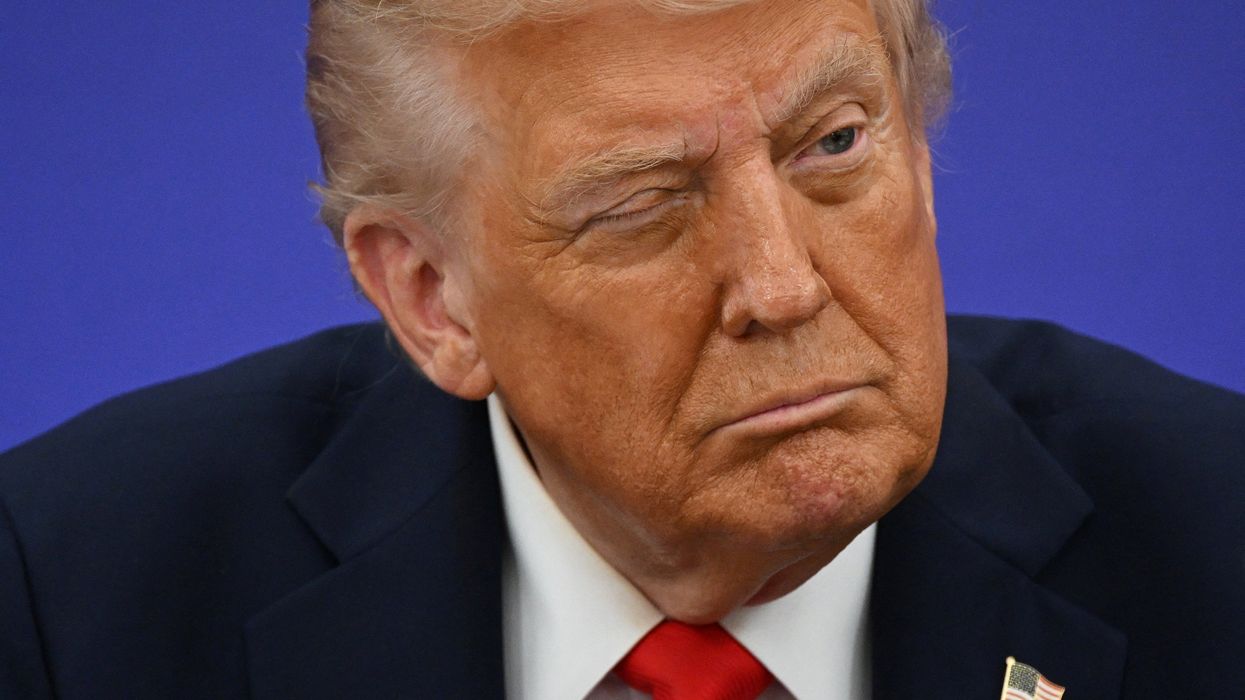President Donald Trump is urging Mayor Eric Adams to drop out of New York City's 2025 mayoral race, as he believes that a smaller field of candidates would make it easier to defeat the Democratic nominee: New York State Assemblyman Zohran Mamdani, now the frontrunner.
In a Marist poll released on September 16, Mamdani has a clear advantage over the other candidates — including The Guardian Angels' Curtis Sliwa (the Republican nominee) and two Democrats: former New York Gov. Andrew Cuomo and Adams, who is running in the general election despite losing to Mamdani in NYC's Democratic mayoral primary. Mamdani leads Cuomo by 21 percent in a four-way race.
John Whitlow, a law professor at City University of New York, examines the race's broader implications in a think piece published by The Nation on September 18.
NYC, Whitlow argues, is the epicenter in a political and economic battle that finds Trump's ideas — which Whitlow says are rooted in 1980s NYC real estate — competing with Mamdani's "democratic socialism." Trump is attacking Mamdani as a "communist," which is inaccurate: Mamdani identifies as a "democratic socialist" along the lines of Sen. Bernie Sanders (I-Vermont) and Rep. Alexandria Ocasio-Cortez (D-New York) — two of his top allies — but not with Leninism, Stalinism or Maoism. Actual communists do not consider Mamdani one of their own.
"Trump's acknowledgement of the link between his past business practices and his approach to governance is revealing: It grounds his particular brand of despotism in the politics of 1980s New York City," Whitlow explains. "This link is especially important given the looming clash between the Trump Administration and the presumptive next mayor of New York: democratic socialist Zohran Mamdani, whose political commitments threaten the neoliberal compact that has characterized the city’s political economy since the resolution of the fiscal crisis in the 1970s."
Whitlow adds, "Mamdani's housing platform in particular aims to curb the outsize power of New York's real estate sector, the milieu in which Trump rose to prominence in the late 1970s and '80s."
Whitlow describes NYC real estate of the 1970s and 1980s as the "landscape in which Trumpism was formed," noting that the 2025 mayoral race has strong "national implications."
"Piggybacking on wealth generated by his father's substantial real estate holdings in the outer boroughs," Whitlow notes, "Trump began acquiring land in Manhattan in the late-1970s, just after the resolution of the fiscal crisis…. There is a through line from Trump's career as a New York City real estate developer to his approach to wielding state power…. With democratic socialist Zohran Mamdani poised to be the city's next mayor, the real estate state that emerged out of the fiscal crisis of the 1970s is on shaky ground. Mamdani has campaigned on a vision of a city that working-class New Yorkers can afford, with specific policies — a rent freeze, fast and free buses, a public option for groceries, expanded universal childcare — to back it up."


